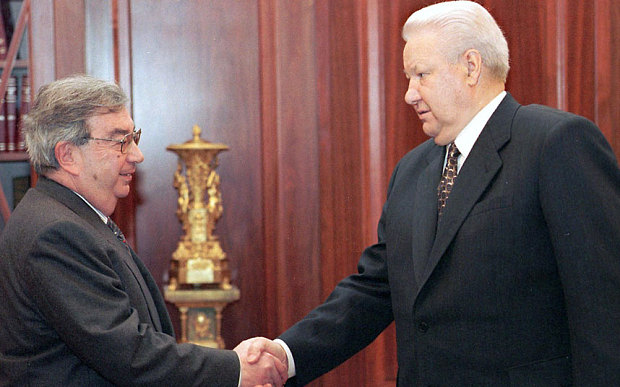In an alternative universe, with just a twist in Russian politics, Yevgeny Primakov might have died, at age 85 late last month, as his country’s president.![]()
Instead, he’ll be known for what the international community remembers as ‘Primakov’s loop’ — his order that a Washington-bound plane across the mid-Atlantic reverse course and turn back to Moscow upon hearing the news that the United States had launched military action against Russia’s ally Serbia in 1999. Though it was ultimately a nationalist gesture that did nothing to stop the eventual NATO-led action in Serbia and the de facto independence of Kosovo, it was the highlight of Primakov’s turbulent nine-month tenure as prime minister.
Russian president Boris Yeltsin turned to Primakov in a moment of crisis, after the collapse of the Russian ruble and an economic collapse that left the once-proud country even more at the mercy of international institutions. Despite narrowly winning reelection over a cast of misfits, nationalists and washed-up communists in 1996, Yeltsin failed in his second term to restore the kind of economic prosperity that capitalism seemed so loftily to promise in the heady days following the Soviet Union’s breakup. Privatization of public industries amounted to a botched firesale of national assets, delivering wealth into the hands of a few lucky and well-placed businessmen who made obscene fortunes in the process.
A former spook who started his career as a writer for Pravda in Cairo in the 1960s, Primakov would become the chief Russian strategic on Middle East affairs across a career that spanned the Khrushchev, Brezhnev and Gorbachev eras, reached its apex under a wary Yeltsin and concluded with a turn as Russia’s chief envoy to Iraq in the lead-up to the 2003 US invasion. Primakov, not surprisingly, vociferously opposed US military action and had nurtured a decades-long relationship with Iraq’s president Saddam Hussein. Continue reading Primakov’s legacy lives on in aggressive Russian foreign policy
